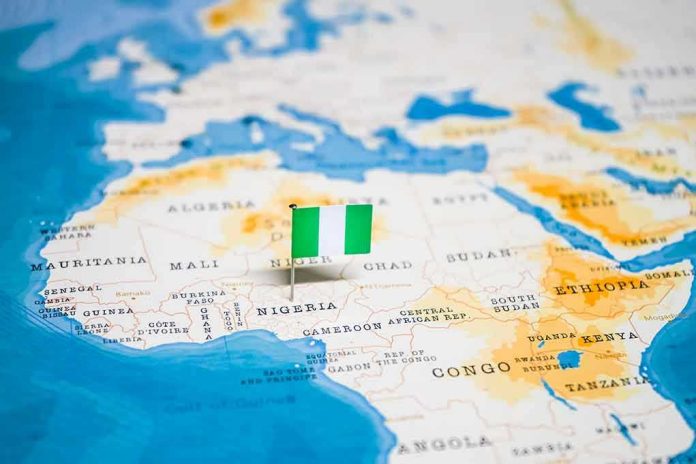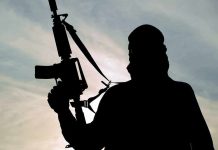
Another grisly massacre by Boko Haram in northeastern Nigeria has left nine innocent people dead and four more injured—and the world’s silence on the relentless slaughter by these jihadists remains as deafening as ever.
At a Glance
- Boko Haram militants killed nine and injured four in a raid on the Malam Fatori community.
- The attack highlights a new wave of violence in Nigeria’s northeast, despite years of military operations.
- Boko Haram and its splinter groups continue to destabilize the region, undermining security and economic recovery.
- Nigerian government officials, including the Borno State governor, are scrambling to respond with new security measures.
Boko Haram Strikes Again—And the Cycle of Violence Continues
Boko Haram, the notorious terrorist group whose very name means “Western education is forbidden,” has once again unleashed chaos. This time, the tiny border community of Malam Fatori bore the brunt of their rampage. Nine people were mercilessly killed, four left wounded—families shattered, lives upended, and the so-called international community barely bats an eye. The attack is part of a string of assaults that have plagued this region for years, with Boko Haram and its offshoot ISWAP (Islamic State West Africa Province) waging an unending war on civilians and the Nigerian state alike.
Located near Nigeria’s border with Chad, Malam Fatori is a strategic target, repeatedly battered by militants seeking to expand their grip. Yet, despite years of military campaigns, billions spent, and the deployment of local and federal security forces, the insurgency refuses to die. The carnage continues, and the “thoughts and prayers” approach from global leaders does nothing to stop the bloodshed or bring lasting security to the battered northeast.
A Government Struggling to Regain Control Amid Chaos
Nigerian President Muhammadu Buhari and Borno State Governor Babagana Zulum are once again left picking up the pieces. Governor Zulum, in particular, has been vocal—warning citizens against collaborating with insurgents and rolling out new security measures. But this is a story that’s played out over and over: government officials announce new crackdowns, the military launches fresh offensives, and for a few weeks, there’s hope. Then another massacre, another village in mourning, and the cycle resumes. The government’s struggle to maintain order and protect its citizens is painfully obvious, as is the sheer tenacity and brutality of Boko Haram’s campaign.
Boko Haram’s tactics are as ruthless as ever—raids, suicide bombings, kidnappings. Earlier this year, a suicide attack on a Nigerian military convoy in the same region killed 27 soldiers, underscoring the group’s continued ability to strike at will. The government’s response? More soldiers, more checkpoints, more promises. But for the people living in places like Malam Fatori, security is never guaranteed, and faith in official assurances wears thinner by the day.
Endless Humanitarian Crisis, Economic Fallout, and a Deafening Silence
The impact goes far beyond the immediate victims of each attack. Every new atrocity triggers a wave of fear and displacement, forcing families to flee their homes—again. Emergency services are stretched to the limit, humanitarian aid is never enough, and the region’s economy lies in ruins. Investment dries up, local businesses shutter, and the young—those who survive—face a future with no schools, no jobs, and the constant threat of violence. Meanwhile, the central government pours money into military operations, but the root causes—poverty, lack of education, and weak governance—go largely unaddressed.
Neighboring countries aren’t spared either. The instability spills across borders, threatening the fragile security of Chad, Niger, and Cameroon. Regional leaders hold summits, issue strong statements, and pose for the cameras, but the bloodshed continues. And in the capitals of the developed world? Deafening silence. The outrage is fleeting, the aid sporadic, and the focus always shifts elsewhere when the headlines fade.
Sources:
Boko Haram insurgency – Wikipedia
Boko Haram militants kill 9 people and injure 4 in northeastern Nigeria, authorities say – ABC News
Boko Haram: Timeline of terror – BBC News



